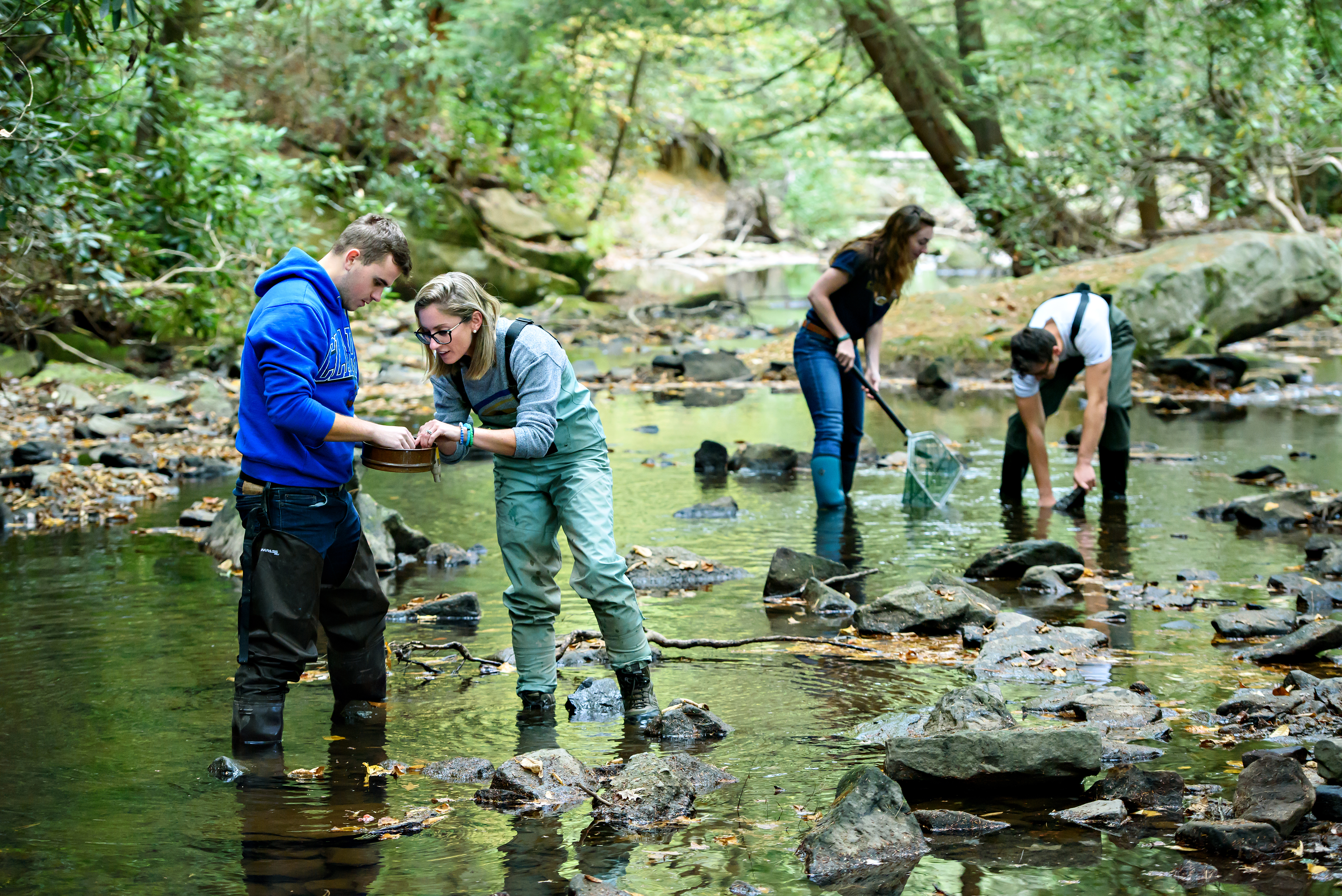Careers
 A biology degree can open doors to exciting and rewarding careers — whether it's endeavors
in the great outdoors or discoveries inside of a laboratory. Let Clarion's experienced
faculty help you uncover your own specific path.
A biology degree can open doors to exciting and rewarding careers — whether it's endeavors
in the great outdoors or discoveries inside of a laboratory. Let Clarion's experienced
faculty help you uncover your own specific path.
Clarion graduates with a B.S. in a field of biology are prepared to work immediately, but are also qualified for graduate school for an M.S. or Ph.D., as well as professional schools in medicine, dentistry, veterinary medicine, physical therapy, occupational therapy, optometry, chiropractic and others. At Clarion, we prepare our graduates by immersing them in hands-on, experiential coursework across the curriculum where you will not just learn about science, but take part in it using current, cutting-edge procedures. Students will have opportunities to:
- Work in teams to conduct research projects as part of your classes.
- Give presentations to your peers and learn to write for a scientific audience.
- Conduct independent research with our experienced faculty.
- Attend scientific conferences.
- Learn to network.
- Gain experience in your field through job shadowing, volunteering and paid internships.
- Develop necessary people skills like teamwork, leadership and proper communication.
Through these and other college experiences, you'll be ready for what comes next. Here are some tips to help you in your search for jobs in ecology and environmental biology/geoscience.
Professional schools
Biology majors will be exposed to all of the coursework required for admission to professional schools like medicine, dental, veterinary, physician assistant, physical therapy, chiropractic, and optometry.
Our Pre-Professional Committee for the Healing Arts is dedicated to preparing students, and guiding them through the process which starts the freshman year, and continues through taking the required entrance exams and completing the applications and interviews your senior year.
graduate Schools
The purpose of an M.S. or Ph.D. program is to pursue further scientific training and conduct cutting-edge scientific research. Students wanting to move into a higher level of responsibility at a company or agency, or who want to be involved more directly in research should consider graduate work.
The best preparation for graduate school is to take and excel in challenging courses, and to gain as much research experience as possible through internships, summer jobs and student-faculty research.
Extracurricular activities are indicators of social skills and the energy and work ethic needed to succeed in graduate school. We have student pursuing M.S. and Ph.D.s in fields like plant pathology, genetic engineering, and wildlife management nationally recognized schools like Carnegie Mellon, John Hopkins University, Yale University, Duke University, and Pennsylvania State University, among others. Other students have earned their Environmental Law degrees at Duquesne and Vermont Law School after leaving Clarion.
Here is a helpful article for applying and getting into graduate school.
employment
Many student choose to work directly after graduating from Clarion with a degree in Biology. There are countless careers that look for training in the Biological Sciences, and our students are ready for all of them.
Students interested in laboratory work and cellular or molecular biology are conducting bioetechnology and biomedical research for companies such as:
- UPMC
- Dupont
- Thermo-Fischer Scientific
- Merck, Sharp
- Dome
- Center for Disease Control
- National Institute of Health
- U.S. Food and Drug Administration.
Students interested in working outdoors, or in fields of organismal biology, ecology or environmental biology have found work at zoos and at non-profit conservation organizations like Western Pennsylvania Conservancy.
Field biologists are in high demand to work as wildlife, forest, wetland or stream technicians for the engineering and environmental consulting industry. Many alumni work for state and federal agencies like the U.S.D.A. Forest Service, the Department of Conservation and Natural Resources, the Fish and Boat Commission, or county conservation commissions.